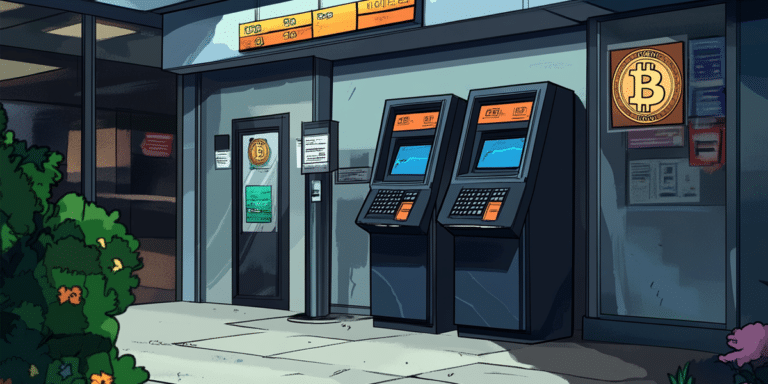Bitcoin ATM Scams Top $65 Million
Bitcoin ATM Scams Soar, Costing Consumers $65 Million in 2024: FTC Reports Tenfold Increase in Losses Since 2020.
Key Takeaways:
- Bitcoin ATM scams have cost consumers $65 million in the first half of 2024 alone.
- The Federal Trade Commission reports a tenfold increase in losses since 2020.
- Scammers often impersonate bank or government officials to trick victims.
The Federal Trade Commission (FTC) has released a new report revealing a spike in Bitcoin ATM scams. Consumers reported losses of $65 million in the first six months of 2024.
This figure underscores the rapid growth of this fraudulent scheme, which has seen nearly a tenfold increase in reported losses since 2020.
Bitcoin ATM Scammers Prey on Vulnerable Seniors
Bitcoin ATMs have become the latest tool for scammers to exploit unsuspecting victims. The FTC reports that from 2020 to 2023, consumers lost over $110 million to these scams, a figure that could be surpassed in 2024 if the momentum continues.
Most Bitcoin ATM scams involve some form of impersonation—government or tech support impersonation—in which the scammers claim the victim's bank account has been compromised or flagged for illegal activity, such as money laundering.
By impersonating trusted authorities, scammers exploit victims' trust and create a sense of urgency, making them more likely to fall prey to this deceitful scheme.
They deceive victims into withdrawing cash, supposedly to protect their funds, and then direct them to a Bitcoin ATM to buy Bitcoin with a provided QR code. The funds are then transferred into the scammer's wallet.
The FTC notes that seniors are more vulnerable to these scams. People aged 60 and over are more than three times as likely to fall victim than younger individuals.
Regulatory Response and Prevention Efforts
Notably, some states in the U.S. have taken actions to mitigate the growing threat from Bitcoin ATMs.
Vermont and Minnesota have enacted laws that place daily transaction limits on cryptocurrency kiosks.
Butte County, California, has also taken proactive steps, as revealed during a local government committee meeting in early August. The county officials discussed the pressing need for more stringent regulations on Bitcoin ATMs and cryptocurrency kiosks.
This local initiative aligns with broader state-level efforts to combat fraudulent activities associated with these machines.
The FBI issued a warning about Bitcoin ATM scams in 2021, but the rapid increase in losses indicates that more comprehensive measures may be necessary.
Similarly, the FTC emphasizes that legitimate businesses and government agencies will never instruct individuals to use Bitcoin ATMs to protect their money or resolve issues.
Consumers are advised to be skeptical of unsolicited communications and to verify the authenticity of any institutional contact before taking action.



